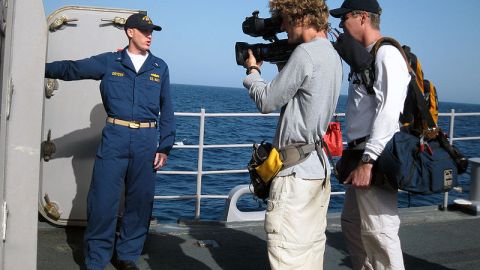Can Documentaries Really Change the World?

Long before reality television challenged our faith in the sustainability of the human race, documentary films were an intriguing look into the minds and hearts of some fascinating subjects. By the time Michael Moore used the medium as a microscope into the inequities of corporate and political culture, things had begun to shift. Today, many of the most critically-acclaimed films of the past few years have looked to mobilize filmgoers through non-fiction. But how much change do these films really inspire?
In light of some of the backlash seen by Al Gore’s Oscar-winning “An Inconvenient Truth,” the question regarding how much documentary film inspires real political mobilization gained some legitimacy. Regardless of how you feel about his work, by the time a despondent Michael Moore appeared on the Tavis Smiley Show, it was easy to wonder if documentary film did anything to further a political enlightening.
Despite all this, the past year has seen some of the most politically-charged documentary films in recent history. And that work hasn’t gone unnoticed, as a number of these films, including “the Cove” and “Food Inc.,” were ultimately honored with Oscar nominations. Considering the non-fiction films that have seen success in the past three years, this medium has suddenly become the go-to form of political expression. But just as people started wondering if these films weren’t inspiring any real change, Joe Berlinger’s “Crude” made the kind of waves not generally expected from documentaries. On the heels of another film, “Fuel,” taking on the petrol industry, Berlinger had some of his content from the film subpoenaed by Chevron. As this footage has suddenly become part of the Chevron lawsuit profiled in the film, it just might be a first for politically-inspired documentary film. Having utilized the documentary format in their previous marketing, Chevron appears to be well aware of the power of documentary film.
All of a sudden, documentary may have finally become the social tool filmmakers hoped it would be decades ago. In the past year, “Food Inc.” and another film tackling the industry, “Fresh,” have mobilized some farming events that include screenings of the films. These kinds of campaigns have expanded the debate about documentary film as a teaching tool. Today the idea of non-fiction cinema inspiring social change has been evaluated by students at the University of Texas, culminating in a recent panel discussion at Harvard coinciding with a new Social Change Film Festival. One film being showcased at the Fair Trade Film Festival has even inspired a defamation lawsuit. And with filmmaker Kurt Kuenne and NBA star Baron Davis looking to inspire change through their films, we may finally be witnessing a new age in which documentary film becomes a viable political tool. It may even be enough to make Michael Moore smile.





